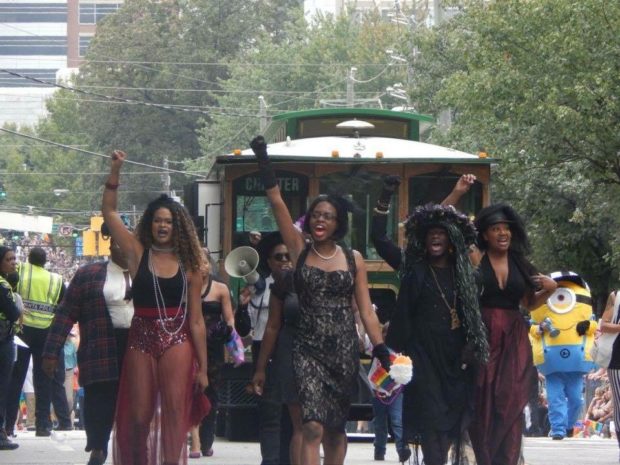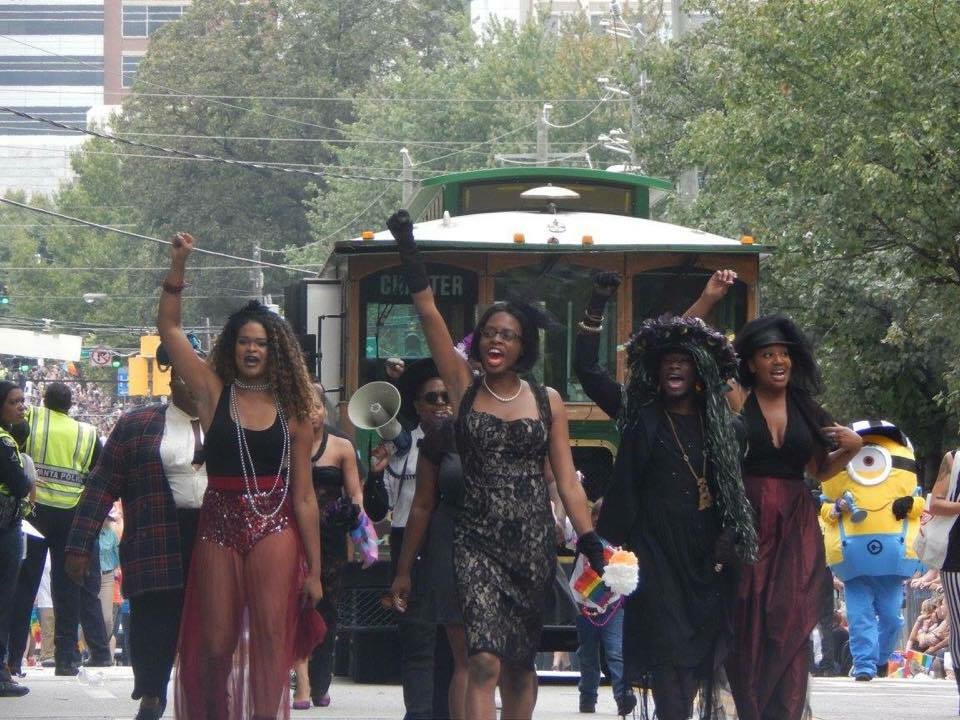
By Micky Bradford, TLC@SONG organizer, and Raquel Willis, National Organizer for Transgender Law Center
Transgender Day of Remembrance (TDOR) is a time to memorialize the trans folk who have been murdered each year. For many, this day is the only time they reckon with the discrimination and violence that Black trans women face. However, for many of us, it’s another day like any other day. We forever carry the stories of our sisters and siblings on our shoulders.
Transphobia and anti-blackness are the reason why the average life expectancy of Black trans women murdered in the U.S. this year is 28 years old. In the Deep South, our Black trans sisters are facing violence from all sides – in prisons and jails, and in intimate partnerships with cisgender men. Those of us with some level of access or privilege are called to respond to a never-ending list of these attacks. In the Trump Era, we have had to resist consuming ourselves solely with rapid response strategies and move into deeply envisioning what a free world really looks like.
Many of the seeds are planted in our rich cultural history like the oral traditions inherited from our African ancestors. Enslaved Africans braided maps into their hair and transferred culture through storytelling. They used dance and music to remind them of their homeland and inspire them to move forward. They also knew that freedom would only be realized through harnessing the power of community.
In uncovering our history, we must elevate the powerful southern Black trans foremothers who used authenticity as a weapon against hate. In 1866, a formerly enslaved trans woman, Frances Thompson, testified that seven white rioters broke into her home and sexually assaulted her and another former slave. Though her story was widely discredited, she is possibly the first trans woman to testify before a congressional committee in the United States. It has only been in recent years that her story has been revealed, which provides a thread tethering our history back to the early decades of the South.
In the 1970s, The Combahee River Collective provided a blueprint when they read poetry from door-to-door to protest violence against Black women from intimate partners, mainly cisgender Black men. Those elements laid the foundation for Black feminist theory and formed a praxis we now call organizing against gender-based violence.
We must harness all the power, all the knowledge our culture can shore up. It is a gift to be Black trans women from the South.
Our work is heavily influenced by these strategies at TLC@SONG, a national collaboration based in Atlanta, GA. We use storytelling and political education to build Southern trans leadership by combining Transgender Law Center’s long history of legal, policy and trans-specific expertise with Southerners on New Ground’s well-respected southern base-building and organizing shop.
For the last two years, we cruised down highways and traversed country roads to share meals with trans leaders across the South. We knew that trans leaders in the South needed spaces to fellowship with and learn from each other. Through the findings from these convenings and conversations, TLC@SONG launched a community survey, The Grapevine/El Grapevine. It was influenced by the common Black southern saying, “I heard it through the grapevine.”
We wanted to hear from trans & gender nonconforming people on issues like access to legal and health resources, as well as police accountability and survival. National surveys on transgender folks still don’t prioritize those living in small towns or rural communities. It’s past time to move Southern trans folks from isolation to collective action!
2017 has been named “the deadliest year on record” in the United States with at least 25 reported murders and 17 of them were Black trans women. We know the solution is in the South. The solution is Black trans women’s leadership. As we reflect on TDOR, we must lift up the Black trans women murdered in the South.
Ava Le’Ray Barrin, Athens, GA
Candace Towns, Macon, GA
Chay Reed, Opa-locka, FL
Chyna Gibson, New Orleans, LA
Ciara McElveen, New Orleans, LA
Jaylow Mcglory, Alexandria, LA
Derricka Banner, Charlotte, NC
Ebony Morgan, Lynchburg, VA
Jaquarrius Holland, Monroe, LA
Kenne McFadden, San Antonio, TX
Mesha Caldwell, Canton, MS
Sherill Faulkner, Charlotte, NC
TeeTee Dangerfield, College Park, GA
The deadly violence the transgender community has faced this year isn’t just another result of the Trump Era. In fact, this violence has been going on for decades and centuries, but only now is society starting to bear witness to the crisis we’ve lived within for years. Just as we can’t let our losses be drowned in this moment of political frenzy, neither can we allow the ways we have resisted to be ignored.

